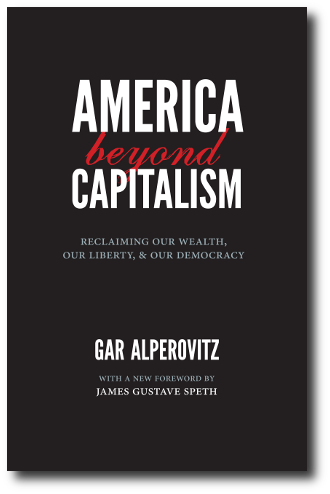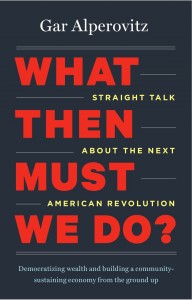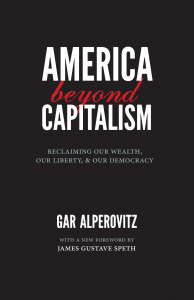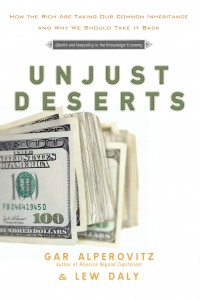Gar Alperovitz’s chapter in Charles Derber’s new book, Welcome to the Revolution: Universalizing Resistance for Social Justice and Democracy in Perilous Times, was featured on BillMoyers.com. The chapter discusses the story of Youngstown and how change happens and is happening today.
This is not, however, simply a story about worker coops. It is much more about how change can happen — and about how an idea whose time has come actually “comes.” The spirit of Youngstown lives on. At the time of this writing, a major new initiative — “50 by 50” — aims to organize 50 million workers in worker-owned enterprises in the United States by 2050. And in many communities, other new initiatives have been building momentum. Philadelphia and Santa Fe, for instance, are actively considering new public banks to develop much more broadly democratized local economies. Activists in Boulder, Colorado, have won two major referenda to take over the local electric utility and convert it to less climate-destroying approaches.
 AMERICA BEYOND CAPITALISM
AMERICA BEYOND CAPITALISM





 Agenda
Agenda  Posterboard
Posterboard 